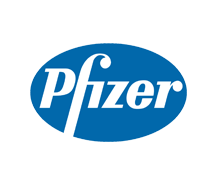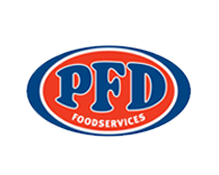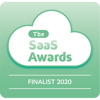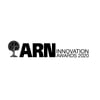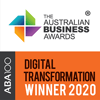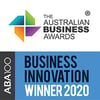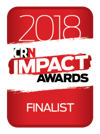Natural Language Processing
Natural language processing is a field of computer science that deals with the processing of natural language data.
Natural language processing is a rapidly evolving field of artificial intelligence. It enables machines to understand and respond to human languages, allowing for more efficient communication between computers and humans. Natural language processing has revolutionised the way we interact with machines, bringing us one step closer to achieving true AI-human interaction.
NLP technology can be seen in everyday applications such as voice recognition systems like Alexa or Google Home, automated customer service bots, virtual assistants, sentiment analysis tools, machine translation services and much more. With NLP technologies advancing at an exponential rate, there is no doubt that its potential will continue to grow exponentially over time.
This article will explore the history of natural language processing, how it works on a technical level and delve into some of the existing applications powered by this groundbreaking technology. Get ready to take a deep dive into the fascinating world of NLP!
What Is Natural Language Processing?
Natural language processing (NLP) is a field of artificial intelligence and computer science that enables machines to understand, interpret, and generate human language. It involves the use of machine learning algorithms such as deep learning, sentiment analysis and text analytics, in order to effectively understand syntax, semantics and other nuances associated with human language. NLP also utilises neural networks for syntactic analysis in which it can identify parts of speech within sentences or phrases.
The applications of natural language processing are vast; from understanding customer feedback on social media platforms to identifying fraud detection patterns in financial documents. As technology advances, so too do the possibilities enabled by NLP - including summarising large amounts of data quickly into meaningful insights, discovering relationships between words in legal contracts and enabling multi-lingual translation services. Natural Language Processing has already been embraced across various industries like banking, healthcare and retail where customer service chat-bots have become commonplace.
As we progress further into the digital age, we will see an increase in demand for efficient tools capable of understanding complex conversations accurately – something only possible through advanced natural language processing capabilities. To meet this growing demand it is essential that businesses invest in improving their NLP systems by leveraging both existing technologies such as deep learning models alongside newer ones such as neural NLP frameworks to stay ahead in the game.
What Are The 5 Steps In Nlp?
Natural language processing (NLP) is an interdisciplinary field of Artificial Intelligence that deals with the understanding, interpretation and generation of human language. It uses a combination of machine learning approaches, along with knowledge from linguistics to develop natural language models for various NLP tasks.
The 5 steps in NLP include text preprocessing, pos tags identification, word embeddings creation, neural networks implementation and deep learning models development. Text preprocessing involves cleaning unstructured data such as noise removal and standardisation. Pos tags are used to identify parts-of-speech within a sentence so they can be analyzed further by other processes. Word embeddings create numerical representations of words in order to capture semantic relationships between them which aids in developing more accurate language models. Neural networks provide a way to process large amounts of data quickly while also allowing complex nonlinear interactions between input variables. Lastly, deep learning models use multiple layers of neurons to build highly effective algorithms for solving difficult problems like sentiment analysis or textual summarization.
In addition to these steps, there are several different types of machine learning methods used in NLP such as supervised learning, reinforcement learning and unsupervised learning. Supervised learning requires labelled training datasets while unsupervised methods require unlabelled ones; both are essential when constructing reliable language models. Reinforcement learning utilises rewards systems where certain actions lead to desirable outcomes based on external feedback loops; this enables machines to learn how best complete their task autonomously over time without prior guidance or information about the environment they’re operating in. All three categories have proven useful for advancing research into natural language processing and its applications in today's world.
What Is NLP Machine Learning?
Natural language processing (NLP) is a field of study focused on enabling computers to understand and process human languages. It involves using algorithms, data science, and AI-powered intelligent systems in order to enable machines to learn from unstructured text sources such as emails, social media posts, books, articles, and more. NLP has applications in many areas including machine translation, speech recognition, entity recognition and sentiment analysis.
Statistical natural language processing (SNLP) is an important subfield of NLP that uses probabilities to identify relationships between words within the same sentence or between multiple sentences. This approach relies heavily on computational linguistics which provides models with structured mathematical representations of language components like grammar rules and lexical items. Intuitively speaking, statistical approaches are useful for understanding how parts of speech interact with each other in different contexts; this can be applied to tasks such as classification or summarization.
Utilising Spark NLP library makes it easier to apply these techniques at scale by providing efficient tool-sets for extracting meaningful insights from large datasets without having to explicitly program complex algorithms. Additionally, there are several open source frameworks available for developing custom solutions tailored for specific projects; some popular ones include OpenNLP and CoreNLP which allow users to design their own deep learning models for tackling various kinds of problems related to natural language processing. By leveraging the power of data science along with advancements in artificial intelligence technologies such as neural networks, entities can now accurately interpret large amounts of textual data quickly and efficiently - opening up new possibilities for automation that were previously inconceivable.
What Are The 3 Pillars Of NLP?
Natural language processing (NLP) is a field of study that focuses on the interactions between computers and human languages. It involves developing computer systems capable of understanding and responding to natural language inputs. NLP combines cognitive linguistics, computer science, and artificial intelligence in order to develop methods for automatically analysing large amounts of data such as text, audio, or video.
The three pillars of NLP are entity recognition, semantic analysis, and part-of-speech tagging. Entity recognition involves identifying words or phrases within an input that refer to specific entities such as people, places, organisations, products, etc. Semantic analysis looks at how individual words interact with each other to create meaning in texts while part-of-speech tagging assigns labels to each word based on its syntactic role within a sentence structure. Together these components form the basis for natural language understanding where machines can interpret user input accurately.
Statistical methods and neural learning techniques are also important aspects of NLP research. Statistical methods involve using probability models to determine which outputs best match given inputs while neural networks use mathematical algorithms modelled after biological neurons in order to learn from past experiences and improve their accuracy over time. Language translation through machine learning has become increasingly popular due to advances in deep learning technologies making it possible for machines to quickly understand multiple languages simultaneously.
NLP represents one of the most rapidly growing fields in technology today with researchers continually striving towards building more powerful tools that can process vast amounts of data and output meaningful information from users' queries efficiently and accurately.
What Are Some Nlp Techniques?
Natural language processing (NLP) is a powerful tool to help computers understand the complexities of human language. NLP has become increasingly popular in recent years, with applications ranging from search engines to virtual assistants and text summarization. NLP techniques rely heavily on statistical models that can process large amounts of data quickly.
One of the most important steps in any NLP project is annotation—the process of labelling each piece of information so it's recognisable by machines. Annotation involves marking up words, phrases, and sentences according to their part-of-speech tagging or topic classification, which are then used as training data for the model. Without this critical step, a machine wouldn't be able to accurately interpret natural language input.
Cloud next provides an easy way to build these sophisticated natural language processing systems via its automated platform. It simplifies many aspects of building an NLP system such as collecting annotated datasets, creating machine learning models based on structured data, and deploying trained models into production environments — all without needing any code. This makes it easier than ever before for developers to create complex language processing programs without having expertise in deep neural networks or other advanced methods.
Conclusion
Natural language processing is a powerful tool for understanding human communication. It enables machines to interpret and analyse natural languages in order to better comprehend the meaning behind them. This article has provided an overview of natural language processing, including its five steps, machine learning applications, three core pillars and various techniques used by practitioners.
NLP allows humans to interact with machines on a much more meaningful level than ever before. Machines can now understand what people are saying or writing and respond accordingly. The use cases are virtually limitless - from providing customer support over chat-bots to automated translation services to improving search engine functionality.
The potential implications of NLP technology are far reaching and will continue to evolve as new research is conducted and discoveries made. Natural Language Processing offers immense possibilities for both technical professionals and non-technical users alike, allowing us all to communicate more effectively with computers and make tasks simpler, faster, and more efficient.
PREVIOUS NARROW AI GLOSSARY TERM
NEXT NARROW AI GLOSSARY TERM
Natural Language Processing Definition
Exact match keyword: Natural Language Processing N-Gram Classification: Natural Language Understanding, Speech Recognition, Text Analysis Substring Matches: Language, Natural, Processing Long-tail variations: "Natural Language Understanding", "Speech Recognition", "Text Analysis" Category: Technology, Artificial Intelligence Search Intent: Information, Research, Solutions Keyword associations: Machine Learning, NLP Algorithms, AI Technologies Semantic relevance: Corpus Linguistics, Machine Learning, Computational Linguistics Parent category: Technology Subcategories: Machine Learning Algorithms, NLP Algorithms, AI Technologies Synonyms: Corpus Linguistics, Machine Learning, Computational Linguistics Similar searches: Speech Recognition technologies. Natural language understanding systems. Geographic relevance: Global Audience demographics: Developers and Researchers Brand mentions : IBM Watson , Microsoft Azure , Google Cloud Platform Industry-specific data : statistical machine learning algorithms for natural language processing (NLP), Neural Information Retrieval Models. Commonly used modifiers : "tools", "applications", "technologies" Topically relevant entities : Machine Learning Algorithms , Automatic Speech Recognition (ASR) Systems , NLP Libraries , Text Mining Techniques."Larry will be our digital expert that will enable our sales team and add that technological advantage that our competitors don't have."
Kerry Smith
CEO, PFD Foods
$1.6 billion in revenue 
"Lion is one of Australasia’s largest food and beverage companies, supplying various alcohol products to wholesalers and retailers, and running multiple and frequent trade promotions throughout the year. The creation of promotional plans is a complicated task that requires considerable expertise and effort, and is an area where improved decision-making has the potential to positively impact the sales growth of various Lion products and product categories. Given Complexica’s world-class prediction and optimisation capabilities, award-winning software applications, and significant customer base in the food and alcohol industry, we have selected Complexica as our vendor of choice for trade promotion optimisation."
Mark Powell
National Sales Director, Lion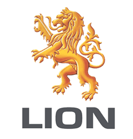
"At Liquor Barons we have an entrepreneurial mindset and are proud of being proactive rather than reactive in our approach to delivering the best possible customer service, which includes our premier liquor loyalty program and consumer-driven marketing. Given Complexica’s expertise in the Liquor industry, and significant customer base on both the retail and supplier side, we chose Complexica's Promotional Campaign Manager for digitalizing our spreadsheet-based approach for promotion planning, range management, and supplier portal access, which in turn will lift the sophistication of our key marketing processes."
Richard Verney
Marketing Manager
Liquor Barons

"Dulux is a leading marketer and manufacturer of some of Australia’s most recognised paint brands. The Dulux Retail sales team manage a diverse portfolio of products and the execution of our sales and marketing activity within both large, medium and small format home improvement retail stores. We consistently challenge ourselves to innovate and grow and to create greater value for our customers and the end consumer. Given the rise and application of Artificial Intelligence in recent times, we have partnered with Complexica to help us identify the right insight at the right time to improve our focus, decision making, execution, and value creation."
Jay Bedford
National Retail Sales Manager
Dulux

"Following a successful proof-of-concept earlier this year, we have selected Complexica as our vendor of choice for standardizing and optimising our promotional planning activities. Complexica’s Promotional Campaign Manager will provide us with a cloud-based platform for automating and optimising promotional planning for more than 2,700 stores, leading to improved decision-making, promotional effectiveness, and financial outcomes for our retail stores."
Rod Pritchard
Interim CEO, Metcash - Australian Liquor Marketers
$3.4 billion in revenue 
"After evaluating a number of software applications and vendors available on the market, we have decided to partner with Complexica for sales force optimisation and automation. We have found Complexica’s applications to be best suited for our extensive SKU range and large set of customers, being capable of generating recommendations and insights without burdening our sales staff with endless data analysis and interpretation.
Aemel Nordin
Managing Director, Polyaire
"DuluxGroup is pleased to expand its relationship with Complexica, a valued strategic partner and supplier to our business. Complexica’s software will enable DuluxGroup to reduce the amount of time required to generate usable insights, increase our campaign automation capability, personalise our communications based on core metrics, and close the loop on sales results to optimise ongoing digital marketing activity."
James Jones
Group Head of CRM, DuluxGroup
"Instead of hiring hundreds of data scientists to churn through endless sets of data to provide PFD with customer-specific insights and personalised recommendations, Larry, the Digital Analyst® will serve up the answers we need, when we need them, on a fully automated basis without the time and manual processes typically associated with complex analytical tasks.”
Richard Cohen
CIO, PFD Foods
$1.6 billion in revenue 
"As a global innovator in the wine industry, Pernod Ricard Winemakers is always seeking ways to gain efficiencies and best practices across our operational sites. Given the rise of Artificial Intelligence and big data analytics in recent times, we have engaged Complexica to explore how we can achieve a best-in-class wine supply chain using their cloud-based software applications. The engagement is focused on Australia & New Zealand, with a view to expand globally."
Brett McKinnon
Global Operations Director, Pernod Ricard Winemakers
"70% - 80% of what we do is about promotional activity, promotional pricing -- essentially what we take to the marketplace. This is one of the most comprehensive, most complex, one of the most difficult aspect of our business to get right. With Complexica, we will be best in class - there will not be anybody in the market that can perform this task more effectively or more efficiently than we can."
Doug Misener
CEO, Liquor Marketing Group
1,400+ retail stores 
"The key thing that makes such a difference in working with Complexica is their focus on delivering the business benefits and outcomes of the project."
Doug Misener
CEO, Liquor Marketing Group
1,400+ retail stores 
"Australia needs smart technology and people, and it has been a great experience for me to observe Complexica co-founders Zbigniew and Matt Michalewicz assemble great teams of people using their mathematical, logic, programming, and business skills to create world-beating products. They are leaders in taking our bright graduates and forging them into the businesses of the future."
Lewis Owens
Chairman of the Board, SA Water 
"Having known the team behind Complexica for some years ago now, I am struck by their ability to make the complex simple - to use data and all its possibilities for useful purpose. They bring real intelligence to AI and have an commercial approach to its application."
Andrew McEvoy
Managing Director, Fairfax Media - Digital 
"I have worked with the team at Complexica for a number of years and have found them professional, innovative and have appreciated their partnership approach to delivering solutions to complex problems."
Kelvin McGrath
CIO, Asciano 
“Working with Complexica to deliver Project Automate has been a true partnership from the initial stages of analysis of LMG’s existing processes and data handling, through scoping and development phase and onto delivery and process change adoption. The Complexica team have delivered considerable value at each stage and will continue to be a valued partner to LMG."
Gavin Saunders
CFO, Liquor Marketing Group 
“Complexica’s Order Management System and Larry, the Digital Analyst will provide more than 300 Bunzl account managers with real-time analytics and insights, to empower decision making and enhanced support. This will create more time for our teams to enable them to see more customers each day and provide the Bunzl personalised experience.”
Kim Hetherington
CEO, Bunzl Australasia 
"The team behind Complexica develops software products that are at the cutting edge of science and technology, always focused on the opportunities to deliver a decisive competitive edge to business. It has always been a great experience collaborating with Matthew, Zbigniew and Co."
Mike Lomman
GM Demand Chain, Roy Hill Iron Ore 
"The innovations that the Complexica team are capable of continue to amaze me. They look at problems from the client side and use a unique approach to collaborating with and deeply understanding their customers challenges. This uniquely differentiates what they bring to market and how they deliver value to customers."
John Ansley
CIO, Toll Group 
"Rather than building out an internal analytics team to investigate and analyse countless data sets, we have partnered with Complexica to provide our sales reps with the answers they need, when they need them, on a fully automated basis. We are excited about the benefits that Larry, the Digital Analyst will deliver to our business.”
Peter Caughey
CEO, Coventry Group 
“Complexica’s Order Management System and Larry, the Digital Analyst will provide more than 300 Bunzl account managers with real-time analytics and insights, to empower decision making and enhanced support. This will create more time for our teams to enable them to see more customers each day and provide the Bunzl personalised experience.”
Kim Hetherington
CEO, Bunzl Australasia 
"After an evaluation process and successful proof-of-concept in 2016, we have chosen to partner with Complexica to upgrade the technological capability of our in-field sales force. The next-generation Customer Opportunity Profiler provided by Complexica will serve as a key tool for sales staff to optimise their daily activities, personalise conversations and interactions with customers, and analyse data to generate actionable insights."
Stephen Mooney
Group Sales Capability Manager, DuluxGroup
$1.7 billion in revenue
"After evaluating a number of software systems available in the marketplace, we have ultimately selected Complexica as our vendor of choice for sales force automation and CRM. Given the large SKU range we carry and very long tail of customers we serve, Complexica’s applications are best suited to deal with this inherent complexity without burdening our staff with endless data entry."
Nick Carr
CEO, Haircaire Australia
Australia's largest distributor of haircare products
“Asahi Beverages is Australia’s largest brewer, supplying a leading portfolio to wholesalers and retailers, including some of Australia’s most iconic brands. Last year Asahi Beverages acquired Carlton & United Breweries, which is its Australian alcohol business division. To harness the strength of our expanded portfolio, we partner with our customers to run multiple and frequent trade promotions throughout the year, delivering long-term growth for both our business and theirs. Given the inherent complexity in optimising promotional plans and our continued focus on revenue and growth management, we have selected Complexica as our vendor of choice after a successful Proof-of-Concept of its world-class optimisation capabilities.”
Kellie Barnes
Group Chief Information Officer
Asahi Beverages
"Dulux is a leading marketer and manufacturer of some of Australia’s most recognised paint brands. The Dulux Retail sales team manage a diverse portfolio of products and the execution of our sales and marketing activity within both large, medium and small format home improvement retail stores. We consistently challenge ourselves to innovate and grow and to create greater value for our customers and the end consumer. Given the rise and application of Artificial Intelligence in recent times, we have partnered with Complexica to help us identify the right insight at the right time to improve our focus, decision making, execution, and value creation."
Jay Bedford
National Retail Sales Manager, DuluxGroup
"At Liquor Barons we have an entrepreneurial mindset and are proud of being proactive rather than reactive in our approach to delivering the best possible customer service, which includes our premier liquor loyalty program and consumer-driven marketing. Given Complexica’s expertise in the Liquor industry, and significant customer base on both the retail and supplier side, we chose Complexica's Promotional Campaign Manager for digitalizing our spreadsheet-based approach for promotion planning, range management, and supplier portal access, which in turn will lift the sophistication of our key marketing processes."
Richard Verney
Marketing Manager, Liquor Barons







